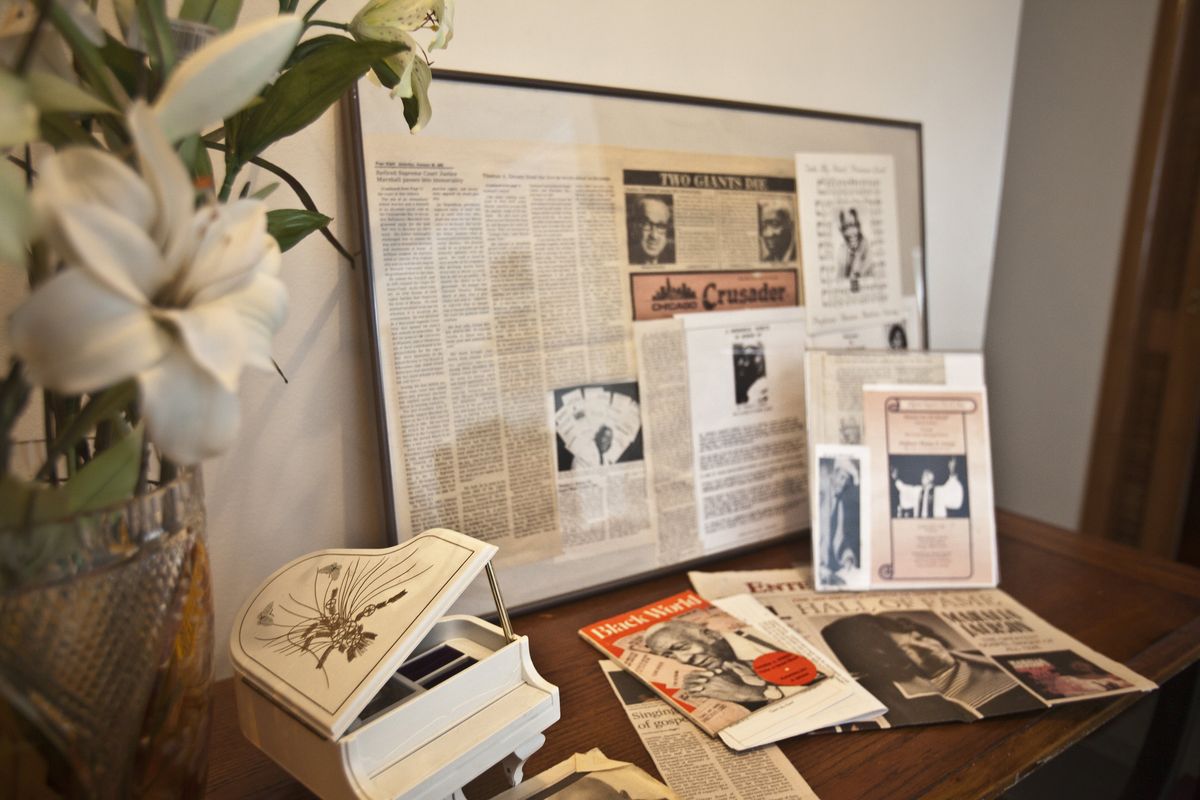Stirring the soul
Songwriter’s son marks anniversary of classic ‘Precious Lord’

DETROIT – When Thomas M. Dorsey was growing up, he didn’t realize that his father was a pioneer in gospel music.
But from the time he was a little boy, tagging along on the church circuit, until he became a man who escorted his dad to major concert halls, there was one song people always wanted to hear: “Precious Lord.”
“That was the primary song people always sang in tribute to him,” said Dorsey, 71, of Oak Park, Ill., whose father, Thomas A. Dorsey, is widely regarded as the father of gospel music.
The elder Dorsey wrote the lyrics of “Precious Lord” in 1932 to a melody from an 1844 hymn titled “Maitland” by American composer George N. Allen.
The song and the man who wrote its lyrics were celebrated recently at a program presented by the University of Michigan Dearborn.
“ ‘Precious Lord’ is probably second only to ‘Amazing Grace’ when we look at a spiritual/religious text that has international popularity and reaches across racial and cultural borders,” said Deborah Smith Pollard, a gospel music scholar and professor of literature and humanities at UM Dearborn.
“Precious Lord” has been published in more than 40 languages. It has been sung by singers as diverse as Aretha Franklin, Nina Simone, Little Richard, Merle Haggard, Engelbert Humperdinck and Elvis Presley. Mahalia Jackson sang it at the funeral of Dr. Martin Luther King Jr. Opera soprano Leontyne Price sang “Precious Lord” at the funeral of President Lyndon B. Johnson.
“The song speaks to people in their moment of need,” said the Rev. Marvin Winans, a gospel singer and preacher. “I grew up in church where people would just stand up and start singing it.”
“It symbolizes the real frustrations, the challenges of trying to traverse life’s experiences and all that that encompasses,” said Tammy Kernodle, a minister and professor of musicology at Miami University in Ohio who spoke at Wednesday’s celebration. “The song embodies that primal, organic scream that says simply, ‘I need help! I can’t carry on by myself.’ ”
“Precious Lord” was born of a real and personal tragedy, which makes it all the more powerful. While Dorsey was out of town, his wife died in childbirth. Their son died hours later.
Wracked with grief, Dorsey sat at a piano and wrote the song.
Thomas A. Dorsey eventually remarried. In addition to his son he had a daughter, Doris Anderson, of South Holland, Ill.
Thomas M., who graduated from Western Michigan University, keeps many mementos of his father in his home, including a framed display that includes photos, awards and sheet music of “Precious Lord.”
Dorsey never shared his dad’s passion for music. He worked most of his life as an industrial engineer, retiring in 1998 from Michigan Consolidated Gas.
But the most treasured time for the dad and son was fishing on the St. Joseph River, near their Three Rivers cottage.
“Outside of church, that’s where I got to spend the most time with him,” Dorsey said.
One of the most important lessons his father taught him was to serve others without always expecting pay.
“He used to make me cut the neighbors’ lawns on both sides of us in Chicago, and the lawn next door in Three Rivers. And in Three Rivers that was a lot of lawn,” Dorsey said. “But he’d tell me, ‘You’ll do a lot in life and you won’t be paid for it. Don’t look for compensation every time you do something. You’ll get your blessing eventually.’ ”
That same advice must have kept Thomas A. Dorsey singing and promoting gospel music. In its formative years, many people called it the devil’s music, shunning Dorsey for bringing blues and jazz chords with him into the church.
But his persistence paid off, as gospel music and musicians are widely respected today.
He penned hundreds of songs, including “Peace in the Valley.”
But the son’s favorites are “One More River to Cross” and “When I’ve Done the Best I Can.”
“To me, those songs epitomized his life in terms of his struggle to get gospel music accepted,” Dorsey said.
“I think he’d be very happy about the growth of gospel music, knowing that he pioneered the effort to make it accepted; not he alone, but with others.”